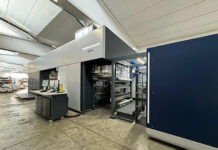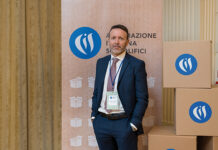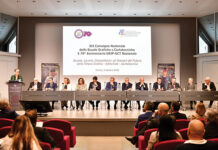A virtuous example of circular bioeconomy: Biorepack, the national consortium for the organic recycling of biodegradable and compostable plastic packaging works to ensure the correct disposal of these products, together with organic waste. In just two years of activity Biorepack has made possible to exceed the recycling objectives set for 2030
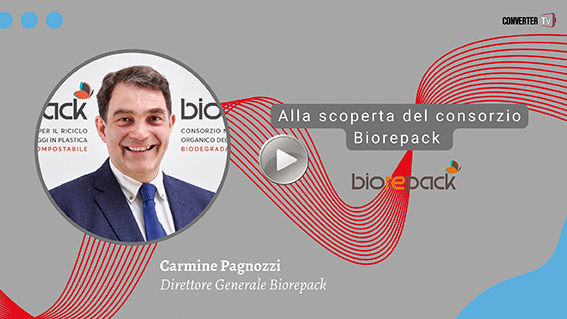
It is the latest addition to CONAI system but, in less than three years of activity, Biorepack, the national consortium for the organic recycling of biodegradable and compostable plastic packaging, has made it possible to reach a very respectable goal. In 2022, Italy has already reached and exceeded the recycling target for compostable bioplastics set for 2030: 60.7% (46,600 tons compared to 76,800 placed on the market). Over five points more than the end-of-decade target.
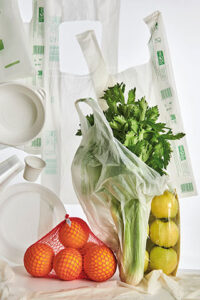
Tangible proof of how important it is for Italy to be able to count on a consortium dedicated to compostable packaging (shopping bags but also plates, glasses, cutlery, films, nets and drink pods). Their peculiarity? Once sent to the treatment plants, like wet waste they are transformed into compost, a natural fertilizer that helps bring organic substance and precious nutrients back to Italian agricultural land.
Biorepack is the first example in the world of a consortium dedicated to the end of life of compostable bioplastics, an innovative material created in the context of the circular bioeconomy and designed specifically to facilitate the collection of the wet fraction of solid urban waste, consolidating and closing the circle of organic recycling.
The operating method underlying Biorepack’s activities imitates the way of the other consortia which have been dealing with the end-of-life management of other materials (glass, aluminium, steel, traditional plastics, wood, paper and cardboard) since 1997: the companies producing compostable bioplastic packaging pay a mandatory contribution to the consortium (the so-called “Conai environmental contribution”), for each ton of material produced. Biorepack then distributes this revenue to the Municipalities or to the entities delegated by them for waste management. In this way, the costs of collection, transport and treatment of compostable packaging are covered thanks to the money paid by companies in the sector.
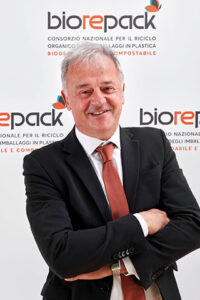 The figures are anything but marginal: “in the last year – recalls Marco Versari, president of Biorepack – we paid the Municipalities 9.3 million euros in economic compensation, 1.8 million more than the previous year”. Furthermore, the system rewards those who are most virtuous in carrying out waste collection, both in terms of quantity and quality. “The purer the collection of organic and compostable bioplastics (that is free of foreign materials), the more the fee paid to the Municipalities increases, up to 250 euros per ton” recalls Versari
The figures are anything but marginal: “in the last year – recalls Marco Versari, president of Biorepack – we paid the Municipalities 9.3 million euros in economic compensation, 1.8 million more than the previous year”. Furthermore, the system rewards those who are most virtuous in carrying out waste collection, both in terms of quantity and quality. “The purer the collection of organic and compostable bioplastics (that is free of foreign materials), the more the fee paid to the Municipalities increases, up to 250 euros per ton” recalls Versari
Here two other activities carried out by Biorepack come into play: on the one hand the consortium is in fact alongside the associated municipalities (there are so far more than 3700, in which 38 million inhabitants live, equal to 64% of the national population) to help them make organic collection more effective. On the other hand, Biorepack develops and supports communication initiatives that educate citizens to throw away only what can then be transformed into compost in the treatment plants: a collection as free as possible of foreign components not only brings an economic advantage to local authorities. Correctly treating organic and compostable waste (which represents between 30 and 40% of the total) allows you to better organize the collection service for other materials as well. Furthermore, it facilitates the work of treatment plants (there are over 150 in Italy including anaerobic, composting and integrated plants) and reduces the amount of organic waste discarded during the activities of eliminating not-compostable fractions with important environmental repercussions: less waste to be sent to waste-to-energy or landfill and more material to be transformed into compost. An essential piece to achieve the objective that the European Union has set itself to combat soil degradation, which involves the release of carbon dioxide into the atmosphere, increases erosion and decreases agricultural yields.
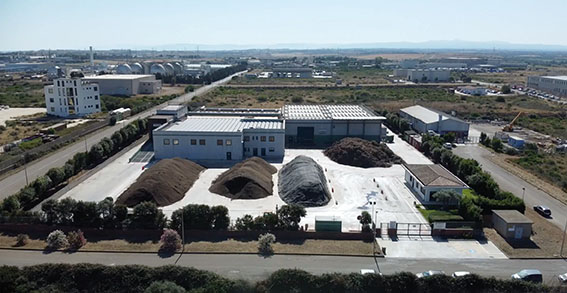
“Having citizens capable of correctly collecting waste and recognizing the compostable packaging to be disposed of together with it is essential” comments Versari. “But increasing this awareness requires adequate investments that municipalities, especially smaller ones, often cannot support alone. Biorepack is therefore at their side in this work, to reach all areas of the country. From big cities to small towns. Winning the challenge that we have in front of us is in everyone’s interest”.








